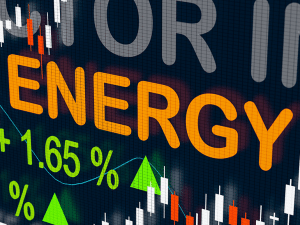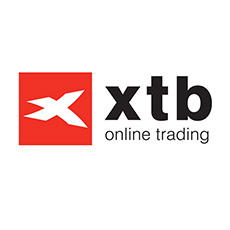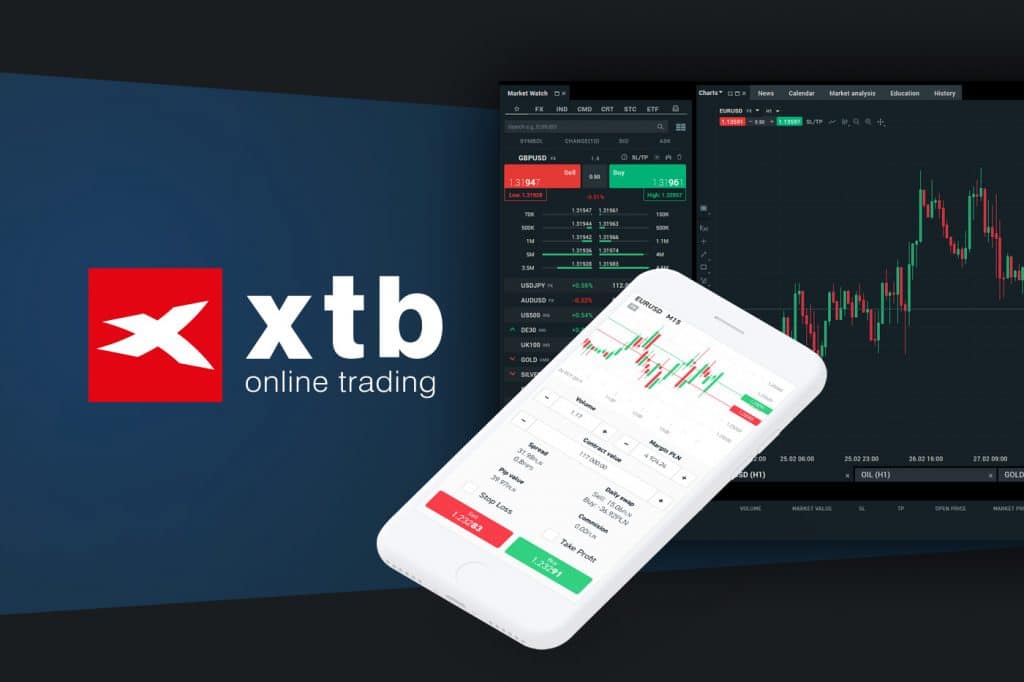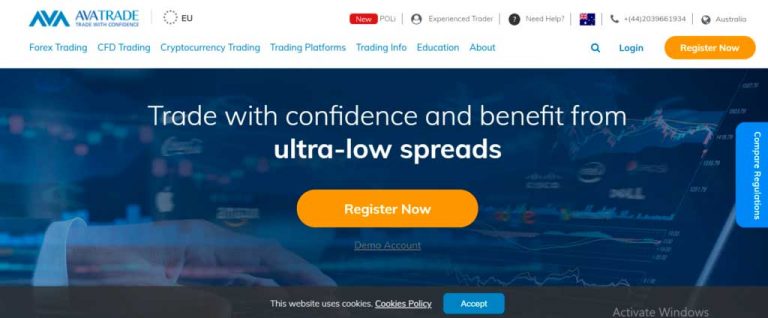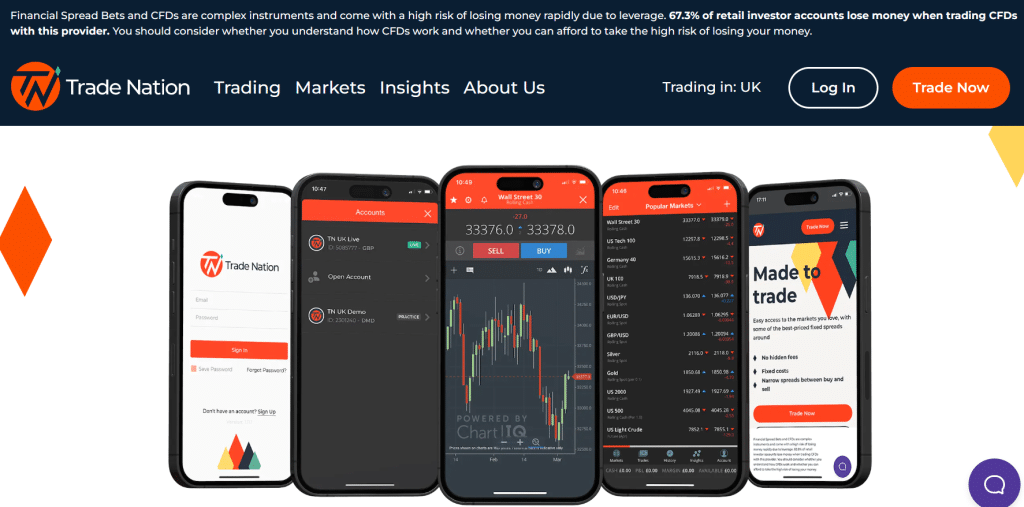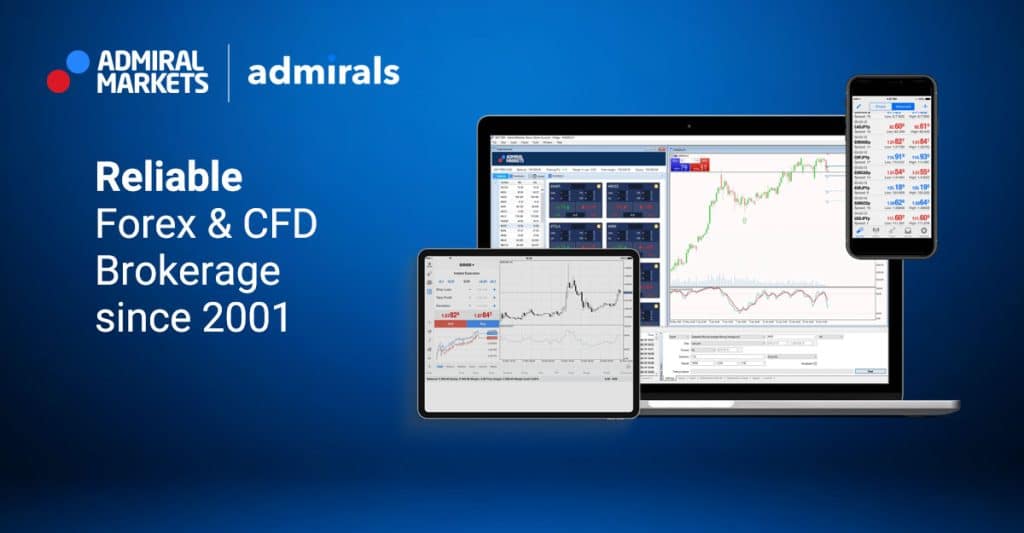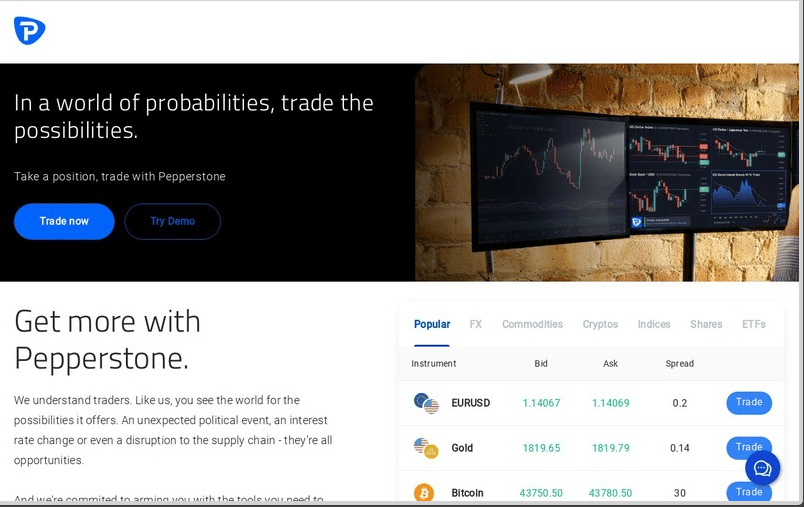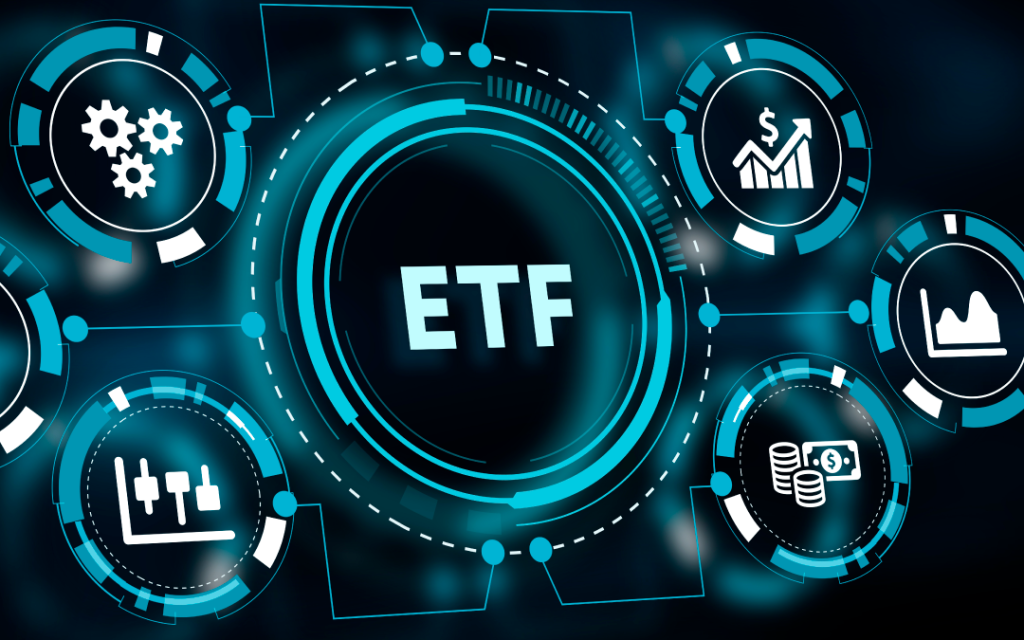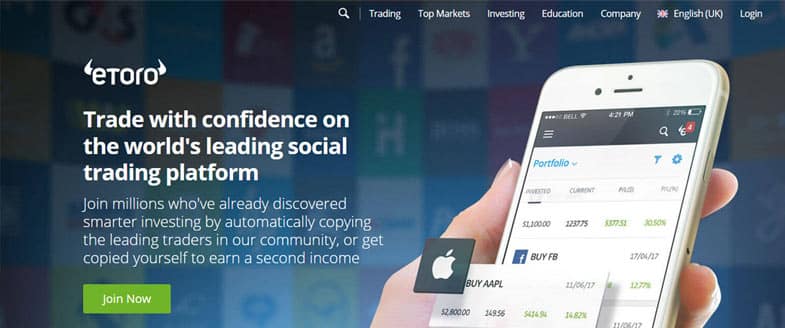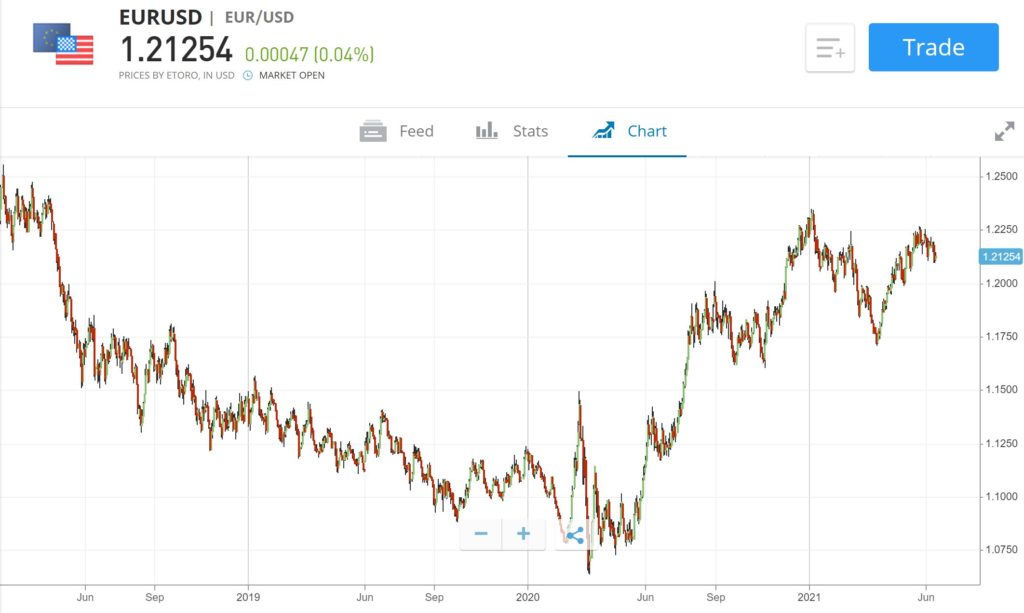7 Energy Trading Platforms in The UK February 2026
If you want to get into commodities trading, don’t limit yourself to the gold and silver markets. You may also want to consider trading the energy markets, one of the most important markets for all types of industries.
In this guide we have reviewed some of the platforms where you can trade energy. We will also look at the basics of energy trading, such as the main strategies and the different ways in which you can trade energy.
Energy Trading Platforms in the UK List February 2026
There are several different trading platforms that let you trade on a variety of assets. However, not all online trading platforms support power trading. This broker should provide you with access to a variety of instruments at low fees and should also have a seamless user interface. There are very few brokers that fit this criterion, and these have been discussed below.
-
-
- XTB – an established online trading platform that offers 0% commissions on stock trading. An established online trading platform that offers 0% commissions on stock trading.
- AvaTrade – aCFD platform that can be used for energy trading, and it is suitable for experienced UK traders. It offersa leverage of up to 5x for retail traders, and of up to 200x for professional trading accounts.
- Trade Nation – a well-known commodity trading platform in the UK. The platform has a strong reputation and places a heavy focus on security.
- Admiral Markets – an established platform that provides a range of different account types to suit all traders. Admiral Markets also supports a variety of charting platforms including MetaTrader, StereoTrader and Web Trader.
- PepperStone – a global brokerage that provides energy and commodities trading as well as forex, indicies, commodities, share CFDs and ETFs. PepperStoneis regulated in 7 jurisdictions around the world, including in the UK by the FCA.
What Is An Energy Trading Broker?
Energy brokers are online brokerages that allow investors to trade energy assets such as stocks, ETFs and commodities. These platforms act as the middle man between investors and energy assets- making it possible to invest in a variety of assets in one place.
Energy brokers work like typical trading platforms. In fact, most of the energy andcommodity trading platforms that we have covered in this article also offer other assets that can be traded or invested in.
Energy brokers provide a range of education and analysis tools that enable investors to analyze the market before making any decisions. Through the trading platforms, investors can learn about different energy assets, conduct market analysis, access real-time market data, place trades and build an energy portfolio.
Available Energy Assets in the UK
Energy is an important commodity that you can trade on the market. Energy has an impact on our daily lives, and it can affect the costs of virtually everything that we use. For example, the prices of groceries, clothes, electronic devices, the gasoline and fuel used in automobiles, and even the heating that is used in households are affected by the prices of energy.
Energy is measured in Btu or British Thermal Units, which is a measurement of the heat content of fuels. In order to get an idea of how much energy is consumed by the world, you can look at information from the US Energy Information Administration. Total world consumption of marketed energy expands from 549 quadrillion British thermal units (Btu) in 2012 to 629 quadrillion Btu in 2020 and to 815 quadrillion Btu in 2040—a 48% increase from 2012 to 2040.
There are several different types of energy assets that you can choose to invest in or trade, and each of these has been discussed here in detail. Firstly, energy itself can be classified into two types, renewable and non-renewable energy. Renewable energy refers to the energy which comes from unlimited or easily replenished sources of energy. Examples of renewable sources of energy include energy that comes from water, air, and solar sources.
75% of retail investor accounts lose money when trading CFDs with this provider.
On the other hand, non-renewable sources of energy, as the name suggests, are sources of energy that are not endless. For example, coal, petroleum, oil, and other fossil fuels can be considered non-renewable sources of energy.
For starters, you can choose to invest in the commodities themselves, through a variety of means that have been discussed below. The major commodities that you could trade or invest in include oil, natural gas, and gasoline.
Now that the different products through which you can engage in trading energy have been discussed, below are the different ways in which these products can be traded.
Trading the Commodities Themselves
One way of trading energy is to trade the commodities themselves. This can be done in 3 ways: the spot market, the futures market, and the CFDs market. If you’re not looking to buy physical energy units such as a barrel of oil or a block of natural gas, then you need to understand the different types of markets that are available. The two main markets are the spot market and the futures market.
The primary difference between the two is that the spot market shows you the current price of the asset, as in the price at which you can immediately buy and sell the asset. This price is derived from the interbank spot market and the different over the counter global markets. This spot price is the benchmark for different types of power trading and plays an integral role in the industry.
On the other hand, energy futures such as oil and natural gas futures have expiry dates, which could be anywhere from a few months to a couple of years. The normal expiry period for an energy futures contract is 12 months. Owning a futures contract entitles you to buy or sell a particular asset at a fixed price in the future. The price of futures contracts is higher than the spot prices because there are a lot of costs involved in carrying a futures contract, such as storage, insurance, and interest rate financing.
For example, if you buy a futures contract for oil at $75 a barrel with an expiry of 12 months, this means that after a year you will be able to buy a barrel of oil at $75 irrespective of the spot price at the time. This would be beneficial if the spot price at the time is greater than $75. At the same time, you could also sell the futures contract in the secondary market at any point before the expiry at a profit.
There are a few nuances associated with this. For example, depending on where the oil was refined and its quality, there are different benchmarks that are used for oil prices. Two commonly used benchmarks for oil prices are the WTI Futures and the Brent Oil Futures. Both of them usually trend in the same direction but is important for you as an energy trader to know the difference between the two. Brent is oil that is drilled out of the North Sea adjoining the UK and Norway while WTI Crude is extracted in the US.
75% of retail investor accounts lose money when trading CFDs with this provider.
Trading via CFDs
Another way to trade different types of energy electronically is to do so via CFDs which track the spot price of different energy assets. They work the same as trading on other commodities. When you buy a unit of an energy CFD, you do not actually own the underlying asset. However, the price of the CFD will move exactly in sync with the spot price of the energy asset, meaning that you can sell the CFD at any time at the spot price of the underlying asset.
Therefore, there are several different ways in which you can trade energy assets directly on the commodities market, but many traders prefer to do so through the CFDs market. According to the source, is estimated that the CFD market will grow significantly in the forecasted period i.e. 2020 to 2027.
Many CFD platforms allow traders to employ some level of leverage to encourage them to take on larger positions. This will reduce the amount of capital that you have to put up yourself while still allowing you to maintain a high rate of profitability, making CFD trading attractive.
Trading Companies Directly Affected by Energy Prices
The second way of profiting through movements in the prices of energy companies is to invest or trade companies that are directly affected by energy price fluctuations. For example, if the prices of oil go up, all the companies that are refining and selling oil will make larger profits than normal, since their costs are relatively the same while their revenues will go up.
Therefore, whenever oil prices go up, this is generally accompanied by an increase in the prices of oil companies such as ExxonMobil, Royal Dutch Shell, BP, and Chevron. The same also applies to natural gas prices and the companies that directly deal with the refining, production, and sale of natural gas.
75% of retail investor accounts lose money when trading CFDs with this provider.
One thing to watch out for while trading energy companies is that the movements in their stock prices are not just affected by the energy prices. The companies can be affected by a variety of other factors too, which is why it is important for the companies you invest in to have solid fundamentals.
When trading or investing in energy stocks, you should consider all aspects of company fundamentals, including its market capitalisation, share price, P/E ratio and dividend yield. In particular, a high dividend payout indicates that the company has relatively stable cash flows and balance sheets, which rewards the investor with consistent dividends.
Trading ETFs and Indices Tied to Energy Prices
The last way to trade energy prices is to do so via ETFs. There are several ETFs that track energy price movements and move in tandem with these prices. Investing in such ETFs will allow you to profit from energy price movements in a convenient manner.
Some of the common oil and natural gas ETFs include the Vanguard Energy ETF, the iShares Global Energy ETF, and the Invesco Solar ETF. In addition to this, you can also invest in a variety of funds that allocate their money among a pool of companies that have something in common.
This is more commonly done in case you wish to invest in renewable sources of energy. Since there are no major companies that trade in renewable energy sources the way there are with non-renewable sources, and the commodities markets for renewable energy assets are not very liquid, it is much better and safer to invest in ETFs and funds for this type of investing.
How We Chose The Best Energy Brokers
- When choosing the platforms to recommend for trading and investing in energy assets, our experts take into account several important aspects. Firstly, the chosen platforms offer competitive spreads for trading energy and do not charge commissions.
- Secondly, all of the platforms mentioned above are regulated in multiple jurisdictions, including the FCA in the UK. This is very important as it increases trust and security.
- We have also highlighted the variety of assets that you can trade, as well as the educational and analytical tools that will help you understand how the platform works and get familiar with it.
Best Commodity Brokers for Energy Trading in the UK
We spent time reviewing different platforms that offer power trading to find the best options for UK investors.
1. XTB – Trade energy stocks with 0% commissions
XTB is an established online trading platform that offers 0% commissions on stock trading. That means it is possible to trade energy stocks for free (although a spread may be charged).
As well as offering a good range of energy stocks, XTB also offers forex, indices, commodities, and ETFs. There are over 2500 assets available to trade on the platform altogether.
To conduct analysis and make informed decisions, traders can choose to use the XStation charting tool. This platform provides market-leading indicators that can be used to carry out technical and fundamental analysis.
XTB is also available on mobile via the XStation mobile app. Traders can manage their open trades in the go and conduct market analysis whenever it suits them. XTB is regulated by the FCA and offers 24/5 customer support. Available deposit methods include credit card, debit card, bank transfer and e-wallets.
75% of retail investor accounts lose money when trading CFDs with this provider.
2. AvaTrade – UK trading platform that is compatible with MT4
AvaTrade is another CFD platform that can be used for commodity trading, and it is suitable for experienced UK traders. One of the biggest standout factors for AvaTrade is the diversity it offers in terms of the different trading platforms, which include the MT4 trading platform, MT5, AvaOptions, and AvaTradeGo. It offers a leverage of up to 5x for retail traders, and of up to 200x for professional trading accounts.
AvaTrade is also one of the top platform choices for automated trading strategies because it offers fast execution times and low spreads (0.28). They also do not charge any commissions, making it one of the cheapest platforms to trade energy. Their minimum deposit is 100 GBP, which you can fund instantly with a debit or a credit card. They are a regulated platform in several jurisdictions, including the FCA in the UK.
There is no guarantee that you will make any profits with this provider. Your money is at risk.
3. Trade Nation – Trade energy stocks with a UK regulated broker
Trade Nation is a well-known trading platform in the UK that has recently partnered with the Aston Villa football team. The platform has a strong reputation and places a heavy focus on security. Not only is it regulated by the FCA, Trade Nation also protects users’ money by holding it in segregated accounts that are managed by Barclays Bank.
Trade Nation can be used to trade commodities, such as oil, and CFD energy stocks. Users can also access forex markets if they wish to diversify their trading strategy. Trade Nation provides professional trading accounts to experienced users who want to access advanced tools.
However, the standard trading account comes with a good range of education and analysis features and is also compatible with MT4 and TN Trader. Traders benefit from low-cost fixed spreads and zero commissions.
77% of retail investor accounts lose money when trading CFDs with this provider.
4. Admiral Markets – Low spread commodity trading platform
Admiral Markets is an established UK trading platform that offers stock CFDs, commodities, indices, ETFs and bonds. It is possible to trade a variety of energy assets with low spreads and no commissions.
Furthermore, Admiral Markets provides a range of different account types to suit all traders. For example, the platform offers an Islamic trading account, a fractional investing account and a professional trading account.
Notably, Admiral Markets also supports a variety of charting platforms including MetaTrader, StereoTrader and Web Trader. The platforms can be used to trade via desktop or mobile app.
To practice new trading strategies, traders can use the demo trading feature. The demo account simulates real-time trading conditions without putting any money at risk. The demo account can be used at anytime and comes at no extra cost.
74% of retail investor accounts lose money when trading CFDs with this provider. You should consider whether you can afford to take the high risk of losing your money.
5. PepperStone – Regulated UK power trading platform
PepperStone is a global brokerage that provides energy trading as well as forex, indicies, commodities, share CFDs and ETFs. The online trading platform supports over 1200 instruments and spreads start from 0.0 pips.
PepperStone is regulated in 7 jurisdictions around the world, including in the UK by the FCA. The platform is compatible with various charting tools including cTrader, Trading View, Auto Chartist, MT4, MT5 and Capitalise.ai.
Furthermore, Pepperstone supports social trading and copy trading. It is also possible to automate the trading process by implementing an API with MT4. Traders can practice using these advanced strategies with the PeppertSone demo account, which is free to use. In terms of educational resources, PepperStone offers real-time market insights, market calendars, articles and news.
Spread bets and CFDs are complex instruments and come with a high risk of losing money rapidly due to leverage. 75.3% of retail investor accounts lose money when trading spread bets and CFDs with this provider. You should consider whether you understand how spread bets and CFDs work, and whether you can afford to take the high risk of losing your money.
Energy Trading Strategies
There are several strategies that are used by traders in order to trade energy in the markets. While the strategy you choose will depend on your risk appetite, how much returns you wish to get, and your general preferences as a trader, there are a few tried and tested strategies that you should be aware of. Three strategies that you might find useful as a starting point for formulating your own strategies have been discussed below.
Use the WTI/Brent Ratio
One common trading strategy for oil traders is to use the WTI/Brent ratio to determine when you should buy or sell both WTI and Brent oil futures. The WTI/Brent ratio, as the name suggests, indicates how many barrels of Brent you need to buy one barrel of WTI. Since the prices of both these securities are correlated, this number can serve as a guide.
For example, if the ratio suddenly falls, then this means that the price of WTI has dropped. Because WTI and Brent are correlated, this would imply that the prices of Brent will fall soon too, so it might be suitable to short Brent CFDs.
At the same time, you could also decide to buy WTI CFDs since the price of gold has fallen and will likely increase again in the near future. Regardless of whether or not you use the WTI/Brent ratio as an indicator of trading opportunities, it is an extremely important ratio that you should know of.
75% of retail investor accounts lose money when trading CFDs with this provider.
Look at other energy commodities
Usually, all energy stocks move in the same direction at any given time. Some commonly traded energy assets include various oil benchmarks, natural gas, and gasoline. Occasionally, one of the energy assets is not in sync with the others, and this represents a trading opportunity because, in the long run, the asset prices are always in sync.
Trade on Macroeconomic News
The third common strategy is to trade on macroeconomic news. Energy prices are more reactive to major market news and economic happenings than other assets are, because of the volatility in the demand of supply of energy sources, particularly oil.
For example, due to uncertainties and supply chain bottlenecks caused by the pandemic, the prices of oil shot up by as much as 70%. As a general rule, if there is something wrong in the financial markets or the larger economy, energy prices tend to go up.
One strategy is to subscribe to an economic calendar that provides you with all this information so that you are well-equipped to take advantage of the volatility in the markets.
Some important data that you should be following as a part of this strategy include GDP numbers for the major countries such as the US, Europe, UK, China, Japan, and Australia; announcements by the Organisation of Petroleum Exporting Countries (OPEC), since they control the supply of oil in the market; Consumer Price Index releases for these countries, as it is a major indicator of inflation in the country; Non-farm payroll numbers since they indicate the level of non-seasonal employment in the economy; Employment data; and other major economic policy announcements.
Risks of Trading Energy
There are a variety of risks associated with trading energy, some of which are systemic to the market and some are specific to the traders in the energy market. These risks have been listed below:
- The first risk that is systemic to the market is the risk of energy spills, particular in the oil markets. A spill is an unforeseen event wherein a container carrying barrels of oils faces problems and ends up unintentionally leaking oil into the oceans. This has several problems. The first problem is that it harms the environment by harming marine life. It also reduces the supply of oil for the particular market. Both of these factors cause a downturn in oil prices, and cannot be foreseen or forecasted.
- The second problem is that energy crises and disputes that usually cause major movements in energy prices are more political than economic, which makes them difficult to forecast.
- Many energy platforms provide high leverage to their traders for trading energy stocks and other commodities. However, this is a double-edged sword, as using increased leverage can reduce the margin of error and open up the trader to massive losses if the trade goes against them.
- Another risk of trading power markets is that they are usually less liquid than other commodities, such as gold and silver. While this might not be a major problem trading with market makers using CFDs, but it can be the source of problems if you’re trading the underlying asset in the spot or futures markets.
Is Energy Trading Regulated in the UK?
The buying and selling of all units of gas and electricity are regulated by the Gas and Electricity Market Authority (GEMA). They are responsible for regulating the spot and the futures markets. At the same time, many power trading brokers, such as XTB, are regulated by a variety of worldwide regulatory agencies. This includes the UK Financial Conduct Authority (FCA). The FCA also regulated oil trading, as well as all the CFD platforms in the UK that trade in commodities.
75% of retail investor accounts lose money when trading CFDs with this provider.
How To Trade Energy Assets
The process of trading energy assets such as commodities, stocks, as well as ETFs is quite straightforward and comprises very few steps. These steps have been discussed below in detail.
Step 1: Identify What Type of Trading You Wish to Do
The first step to trading energy stocks is identifying which form of trading you wish to do from the ones listed above: commodities, stocks, or ETFs. This decision could depend on a variety of factors. Traders who are familiar with fundamental analysis may prefer investing in energy stocks. On the other hand, traders who are comfortable with technical analysis may prefer to trade energy futures.
Step 2: Identify the Right Platform
The next step is to identify the right platform that suits your trading requirements. This platform should support the asset class that you are trading. Should not charge very high fees or commissions, and should have a variety of products available for trading.
At the same time, it is important to look at the leverage the platform provides, the other charting and analysis feature that have to assist with your technical analysis, their non-trading fees such as inactivity and deposit/withdrawal fees, and whether or not they provide a news feed for fundamental analysis, as well as other factors.
Step 3: Select an Appropriate Strategy
The next step for you is to select an appropriate strategy based on the assets that you will be trading. You can either choose from one of the different strategies discussed below or come up with your own strategy. It is important for your strategy to combine both fundamental and technical analysis since both these factors affect energy prices equally. At the same time, you should also backtest your strategy to ensure that it has performed well against the market in the past.
Step 4: Begin Trading
Once you have selected an appropriate asset, platform and strategy, all that is left is for you to begin trading. You should remember to take commissions and fees into account while calculating your profits or losses. At the same time, you should also continually monitor your performance and figure out ways to tweak your strategies and fine-tune them to avoid losses and maximise your profits.
75% of retail investor accounts lose money when trading CFDs with this provider.
Conclusion
In the UK, it is possible to trade energy on a variety of platforms using several strategies. Before trading energy, it is important to understand the different options that are available so that you can choose a platform and strategy that suits your needs. It is also wise to conduct market research into the energy industry before making any investment or trading decisions.
In this guide, we have discussed some possible energy brokers that are available to UK traders. We have also covered some common strategies that are used by some traders. Energy trading comes with financial risk and the strategies mentioned are not suitable for all traders.
FAQs
Which are energy assets to trade?
Energy assets to trade include oil and natural gas. There are a variety of oil benchmarks that you can trade, including the WTI and the Brent oil.What are energy trading platforms in the UK?
While different trading requirements require different trading platforms, XTB is a suitable energy trading platform in the UK for many traders.How much money do I need to trade energy?
Depending on the platform that you use in order to trade, their minimum deposit requirement is how much money you’ll need to trade energy stocks. Many platforms also allow you to trade on leverage, thereby allowing you to take on large positions without risking a lot of your own capital.Is energy trading legal in the UK?
Yes, energy trading is legal in the UK and is regulated by the Financial Conduct Authority (FCA).How can I open an account in an energy trading platform?
The process to open an account in an energy trading platform begins with simply heading over to their website and registering as a trader. Once you have completed the ID verification process, you can then deposit funds to your account and begin trading.References:
“https://www.eia.gov/outlooks/ieo/pdf/world.pdf”
“https://guidehouseinsights.com/reports/power-trading-platforms-market#:~:text=Power%20trading%20platforms%20are%20software,competitive%20power%20exchange%20or%20through”
“https://www.verifiedmarketresearch.com/product/cfd-market/”
“https://docs.iconics.com/v10.97/genesis64/help/Apps/WBDT/EA/General_Concepts_About_Energy_Assets.htm”Nishit Kumar Finance Writer and Analyst
View all posts by Nishit KumarNishit is a NGL Trader Analyst at Akari Trading. He has also worked as an analyst for Morgan Stanley and Onyx Commodities.
Before starting his career in finance, Nishit studied at the University of Warick where he was an active member of the Hedge Fund society. Due to his qualifications and experience, Nishit is considered an industry expert and enjoys writing content that could help traders to make informed decisions.
As well as writing, Nishit worked as Associate Editor for The Economic Transcript until 2021. He has also written for Newsweek and has good knowledge of current events that could affect the financial markets.
WARNING: The content on this site should not be considered investment advice and we are not authorised to provide investment advice. Nothing on this website is an endorsement or recommendation of a particular trading strategy or investment decision. The information on this website is general in nature, so you must consider the information in light of your objectives, financial situation and needs. Investing is speculative. When investing your capital is at risk. This site is not intended for use in jurisdictions in which the trading or investments described are prohibited and should only be used by such persons and in such ways as are legally permitted. Your investment may not qualify for investor protection in your country or state of residence, so please conduct your own due diligence or obtain advice where necessary. This website is free for you to use but we may receive a commission from the companies we feature on this site.
By continuing to use this website you agree to our terms and conditions and privacy policy.Trading is risky and you might lose part, or all your capital invested. Information provided is for informational and educational purposes only and does not represent any type of financial advice and/or investment recommendation.
Registered Company number: 103525
© tradingplatforms.com All Rights Reserved 2023
We use cookies to ensure that we give you the best experience on our website. If you continue to use this site we will assume that you are happy with it.Scroll Up

